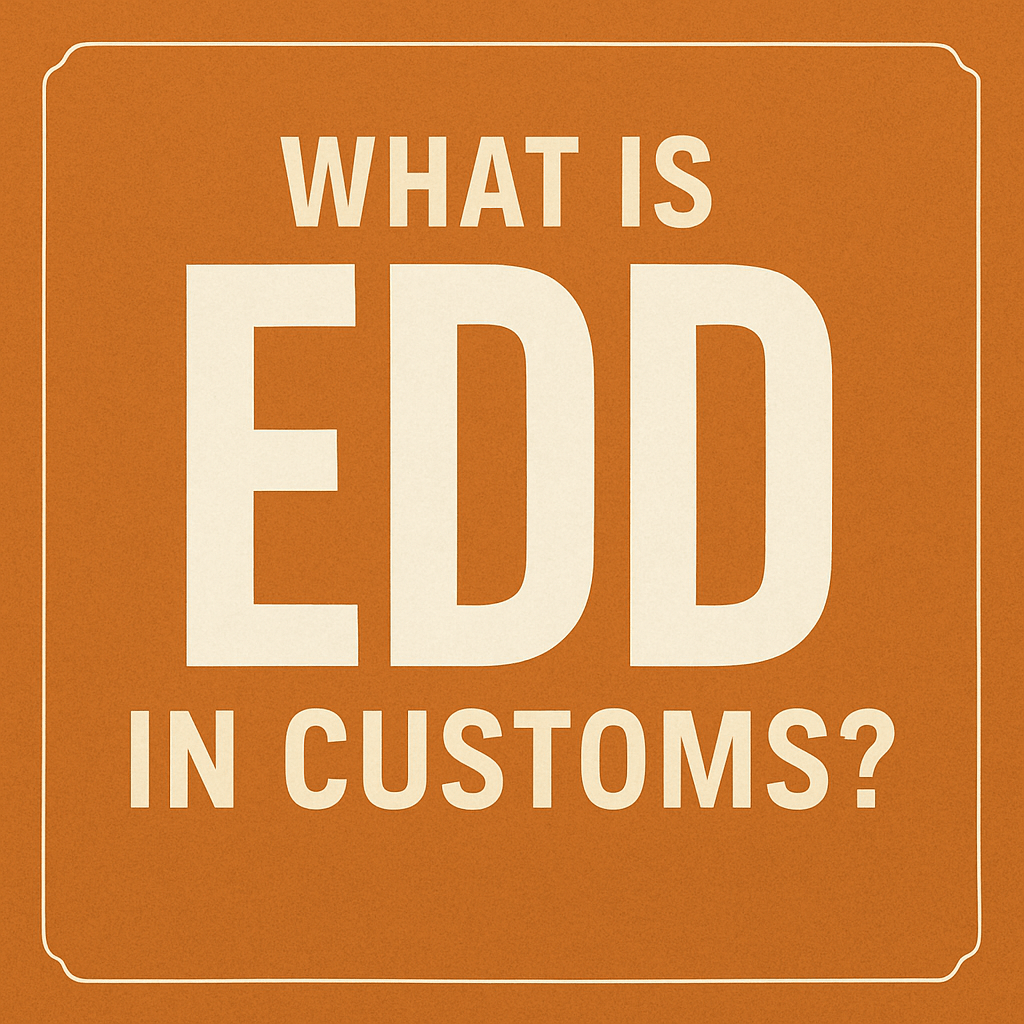Explore
- Home
- About Us
- Services
- Blog
- Contact Us
Quick links
- Guide to Import
- Guide to Export
- ICEGATE
- DGFT
- Get DSC

In customs, EDD stands for Extra Duty Deposit. It is a provisional amount collected by customs authorities when there is doubt about the declared value of imported goods. EDD acts as a temporary safeguard to protect government revenue until the correct valuation is determined. It is imposed under Rule 12 of the Customs Valuation (Determination of Value of Imported Goods) Rules, 2007.
EDD is commonly levied when customs suspects undervaluation, related party transactions, or when documentation is incomplete or inconsistent with the declared value. The importer is required to deposit an additional percentage (usually 1%–5%) over and above the duty calculated on the declared value.
This deposit is not a final duty but a precautionary measure. Once customs authorities complete their verification and are satisfied with the valuation, the EDD is either refunded (if the value is accepted) or adjusted against any additional duty payable (if the value is increased).
EDD helps ensure fair trade practices, discourages misdeclaration, and maintains compliance with WTO Customs Valuation norms. It provides the customs department time to investigate without delaying clearance of goods unduly.
EXCELLENTTrustindex verifies that the original source of the review is Google. Had a really good experience with JParks India. Rahul sir helped me a lot with my import work and were always active and responsive. Whatever documents or guidance was needed, they handled everything smoothly and explained things clearly. Felt stress-free throughout the process. Very helpful team, definitely recommend them if you’re doing import or export.Posted onTrustindex verifies that the original source of the review is Google. Quick & reliable servicePosted onTrustindex verifies that the original source of the review is Google. I took import consultancy services from Mr. Rahul at Jparks India Private Limited, and I must say he has excellent knowledge of the process. Really appreciate his professionalism and support. highly recommended!Posted onTrustindex verifies that the original source of the review is Google. very prompt and authentic services. team very responsive and courteous.Posted onTrustindex verifies that the original source of the review is Google. Wonderful Service and Very Fast. Love to recommend everyone. Thank youPosted onTrustindex verifies that the original source of the review is Google. I can get your import and export support in the future and I need it...I hopePosted onTrustindex verifies that the original source of the review is Google. Good service and posstive resposePosted onTrustindex verifies that the original source of the review is Google. Words fastest service for IEC Certificate and many for your Business They really understand client problem.Posted onTrustindex verifies that the original source of the review is Google. I found Mr Rahul Kolge quite professional & ethicalPosted onTrustindex verifies that the original source of the review is Google. Very Good and prompt response by the team and the work was completed in A day Appreciate itVerified by TrustindexTrustindex verified badge is the Universal Symbol of Trust. Only the greatest companies can get the verified badge who has a review score above 4.5, based on customer reviews over the past 12 months. Read more







